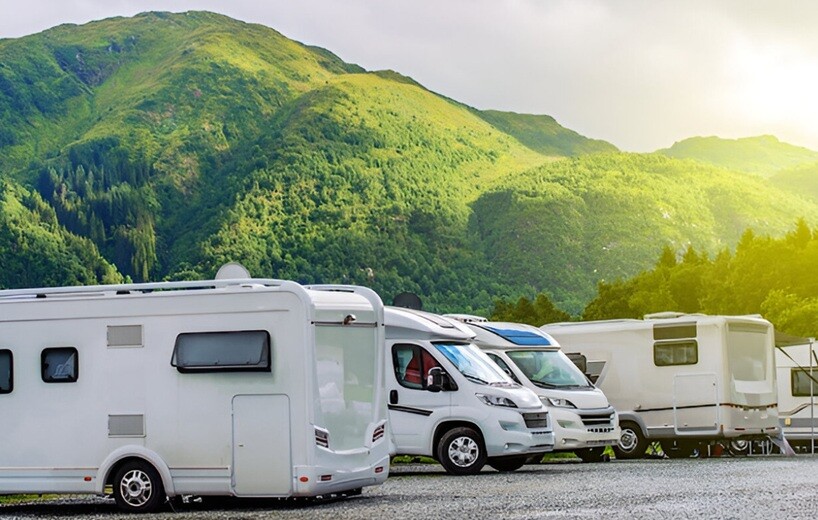In an age where “think globally, act locally” isn’t merely a well-intentioned slogan, but the foundation of a greener lifestyle, have you ever stopped to contemplate the environmental footprint of your travel habits? When you free the shackles of everyday routine, hitch your caravan, and take the open road, do you ever wonder, “What is the environmental toll of my caravan adventure?” Here’s a comprehensive exploration of the ecological bearing of caravan travels.
While on the surface, caravan travels are excellent examples of sustainable tourism. They offer a degree of convenience and autonomy that traditional modes of travel struggle to compete with. However, like all things, they also have a flip side. So, let’s buckle in, shift gears and navigate through the twists and turns of this journey into understanding the eco-friendliness or lack thereof when it comes to caravan travelling.
The Manufacturing Perspective
It’s crucial to remember that before any journey begins, the caravan itself must be built – an event significant in its environmental implications. Manufacturing a standard caravan entails an extensive use of materials like aluminium and plywood, often procured through processes that aren’t kind to Mother Nature. Intense mining activity for aluminium extraction, timber logging for plywood can cumulatively contribute to substantial environmental damage.
Furthermore, the manufacturing process itself is energy intensive. Often, the energy sourced is from non-renewable resources, thus further exacerbating the caravan’s carbon footprint. However, alternative eco-friendly materials, such as recycled aluminium and sustainable timber, are gaining traction.
Lastly, the end of a caravan’s life cycle also warrants a thought. With proper care, a caravan can last several decades. However, eventually, it will find itself in a junkyard, where its potential for recycling and disposal becomes a pressing issue.
The Carbon Emissions
One may argue that a caravan’s carbon emissions, originating mainly from the towing vehicle, would not far exceed those of a regular car journey. However, considering towing a caravan demands more fuel, the emissions could potentially skyrocket. Caravans’ massive structure, weight and poor aerodynamics considerably add to the fuel consumption of the towing vehicle, thereby amplifying its CO2 emissions.
On the bright side, caravanning typically encourages slower travelling and less frantic itineraries – this can result in fewer overall journeys and thus lesser emissions. Additionally, adopting eco-driving techniques can significantly reduce the carbon emissions from your caravan trips.

Ongoing Environmentally Conscious Trends
There has been a ramping up of environment-friendly practices in caravans production and use. More and more manufacturers are embracing sustainable materials and energy-efficient designs. Moreover, a burgeoning trend is the rise of solar-powered caravans, which drastically reduce reliance on non-renewable resources and curb associated emissions.
Moreover, an ecological consciousness is filtering down to the individual caravan user. From waste management to energy use, campers are adopting greener practices. A shift towards carbon offsetting is picking up pace, allowing travellers to counterbalance their carbon footprint.
Evaluating the Pros
Caravanning’s self-contained nature engenders a minimalistic approach to travel, requiring fewer overall resources as compared to other alternatives. With a slower pace of travel, this equates to fewer carbon emissions over time. With long travels, the resource usage seems to balance out. Decisions like sticking to local areas for tourism, using bikes for nearby jaunts, and managing waste can further reduce your footprint.
Conclusion
In essence, caravan travelling, like any other form of travel, leaves a definite impact on the environment. It’s up to us as responsible citizens to minimise it and adopt more sustainable practices. Transforming from a regular caravanner to an eco-Vanner requires a shift in thought and action.
Many are already embracing cleaner fuels, solar power, eco-friendly items, waste management techniques, potential carbon offsetting, and a general consciousness about minimising their footprint. Coupling this shift with manufacturers swerving towards more eco-friendly caravan builds, the future shines bright for a new dawn in caravanning – a more sustainable, responsible, and greener caravan culture. Because, at the end of the day, our planet is the ultimate home that we should strive to maintain and improve.
You may also like to read,







